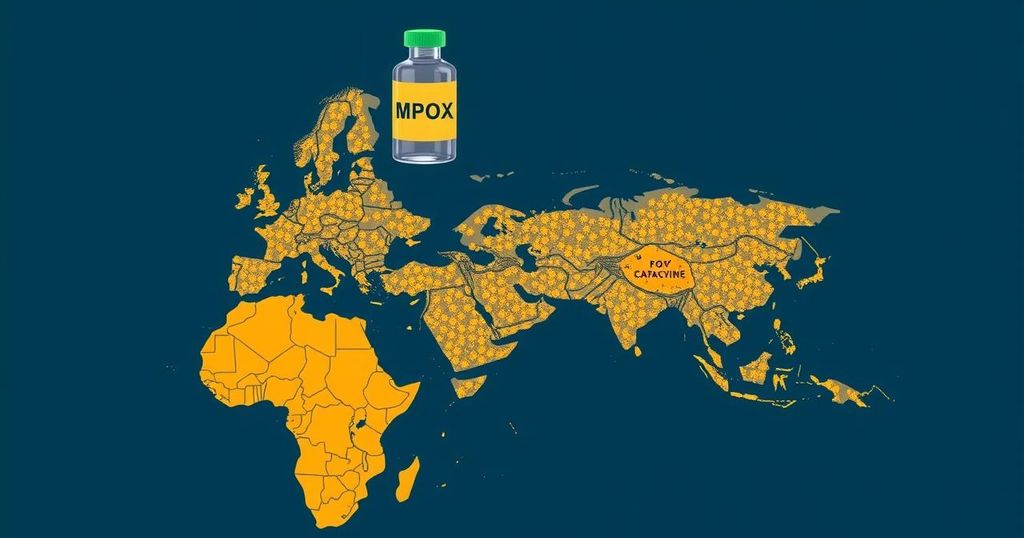Vaccination Efforts Against Mpox for Children Stalled in Congo Due to Liability Issues

Vaccination for mpox in the Democratic Republic of Congo began for adults, but children’s vaccination is stalled due to liability negotiations over potential side effects. Japan’s pledge to donate three million doses of the LC16m8 vaccine is significant as it is the only child-approved vaccine. The delays highlight the urgent need for better systems in global health to address similar issues in future health crises.
In the Democratic Republic of Congo, adults have commenced receiving vaccinations against mpox; however, the vaccination of children, who are at the highest risk, remains hindered due to unresolved legal issues concerning liability for potential side effects of the vaccine. Japan’s recent commitment to donate three million doses of the LC16m8 vaccine to Congo is significant, being the only child-approved vaccine against mpox. Negotiations between the two nations lingered over clarifying the financial responsibilities if any adverse effects arise. While Congo has now reportedly settled the issue, the delays underscore the necessity for a more efficient global health response mechanism to expedite access to life-saving vaccines.
Despite the complexity of ensuring liability coverage, health officials in Congo emphasize the urgency of these vaccinations, particularly as children constitute the majority of Africa’s mpox-related fatalities this year. Notably, the LC16m8 vaccine requires specialized delivery methods, thus necessitating proper training for health workers. Additionally, alongside Japan’s shipment of the needles required for this vaccine, global health authorities advocate for the establishment of advanced systems that would facilitate negotiations in future health crises. These systems would support prompt and equitable access to vaccines, ensuring comprehensive planning for potential complications that may arise during emergencies.
Japan’s LC16m8 vaccine received emergency use clearance from the World Health Organization recently, while another vaccine, also used in Congo, is being distributed more steadily amid concerns regarding awareness among vulnerable populations. As health officials work toward mobilizing the bureaucracy to ensure timely delivery and the effective deployment of the vaccine, it remains critical to prioritize trials and logistics to maximize the vaccines’ efficacy. The urgency surrounding these efforts is palpable, especially given the staggering statistics highlighting the impact of mpox on children in the region.
The mpox vaccine situation in the Democratic Republic of Congo illustrates the complexities involved in international health collaborations concerning vaccine distribution, particularly in low-income nations. The LC16m8 vaccine, developed for smallpox, emerges as a promising solution for combating mpox among children. However, discussions surrounding liability for any side effects ground progress. Historical examples, including vaccine rollouts during the COVID-19 pandemic, reveal that legal disputes over liability can significantly delay essential health interventions. The need for efficient negotiation frameworks that prioritize timely responses is critical, as highlighted by health professionals and global health experts.
In conclusion, the vaccination campaign for mpox in the Democratic Republic of Congo is significantly delayed due to unresolved liability issues regarding child vaccinations. Japan’s planned donation of the LC16m8 vaccine represents a crucial step forward, yet the ongoing negotiations reflect broader systemic challenges in global health. Establishing comprehensive liability frameworks in advance of pandemics is essential for ensuring that such life-saving vaccines reach vulnerable populations promptly. The focus now turns to coordinating subsequent steps to guarantee that the vaccinations are administered effectively and equitably.
Original Source: www.usnews.com








